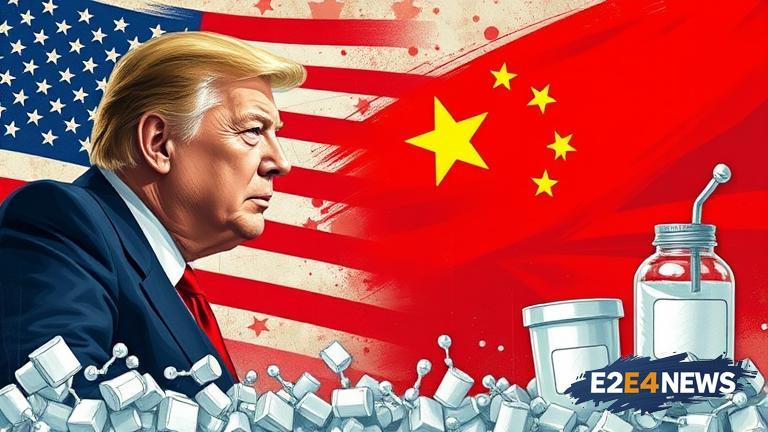The United States has taken a significant step in its efforts to combat the fentanyl crisis by imposing new tariffs on Chinese goods. The move is aimed at pressuring China to take greater action in addressing the issue of fentanyl production and trafficking. Fentanyl, a synthetic opioid, has been linked to thousands of overdose deaths in the US, and the country has long accused China of being a major source of the drug. The new tariffs, which took effect on July 12, target a range of Chinese products, including pharmaceuticals, chemicals, and machinery. The US has also called on China to do more to regulate its chemical industry and prevent the diversion of precursor chemicals used in fentanyl production. China has responded to the tariffs by accusing the US of ‘politicizing’ the fentanyl issue and ‘unfairly’ targeting its companies. The Chinese government has also emphasized its own efforts to combat fentanyl trafficking, including the establishment of a national task force to tackle the issue. Despite these efforts, the US remains skeptical about China’s commitment to addressing the problem. The trade tensions between the two nations have been escalating in recent months, with the US imposing tariffs on billions of dollars’ worth of Chinese goods. China has retaliated with its own tariffs on US products, including agricultural goods and automobiles. The fentanyl crisis has become a major point of contention in the US-China trade relationship, with the US accusing China of not doing enough to prevent the production and trafficking of the drug. The US has also been critical of China’s lack of transparency and cooperation in addressing the issue. The Chinese government has pushed back against these criticisms, arguing that it is taking significant steps to combat fentanyl trafficking and that the US is unfairly scapegoating China for its own failures in addressing the crisis. The trade tensions between the US and China have significant implications for the global economy, with the potential to disrupt supply chains and impact businesses around the world. The US and China are the world’s two largest economies, and their trade relationship is critical to global economic stability. The fentanyl crisis has also become a major public health issue in the US, with thousands of people dying from overdoses each year. The US government has been under pressure to take action to address the crisis, and the new tariffs on Chinese goods are seen as a key part of this effort. However, the tariffs have also been criticized for their potential impact on US businesses and consumers, who may face higher prices and reduced access to certain products. The US-China trade tensions are likely to continue in the coming months, with the fentanyl crisis remaining a major point of contention between the two nations.
